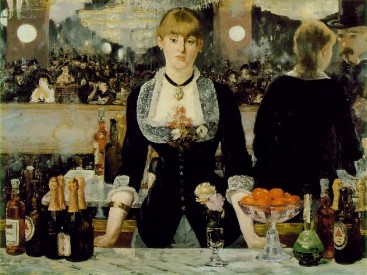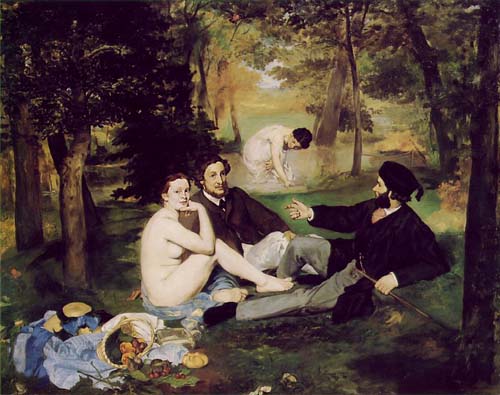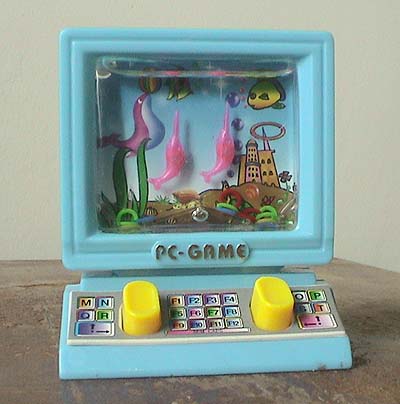
|
Lorna Mills and Sally McKay
Digital Media Tree this blog's archive OVVLvverk Lorna Mills: Artworks / Persona Volare / contact Sally McKay: GIFS / cv and contact |
View current page
...more recent posts

A little Rodney Graham goes a long way, and this can be a beautiful thing. I find his 1991 insert into the James Bond book Dr No both delighful and inspiring. It's a bookmark the size of a page, designed just like the page, with a piece of text that flows in and out of the story. Bond is paralysed from some drug and a centipede is cralling on his face. Graham sends the insect travelling down Bond's whole body and back up to where it started. It's a sexy little story! Hilarious. I'm very drawn to this gentle form of intervention, and I see it as part of a larger(ie: beyond Graham) practice of piling art ideas into pop culture and vice versa, packing together a bunch of ever-morphing cultural snowballs. Unlike my big-picture snowball model, however, this project is based on a strict loop structure, which is Graham's usual form. The story makes a sort of self enclosed narrative bubble that blips out the side of Fleming's narrative like a friendly hernia.
I went to the opening of the AGO's major Rodney Graham exhibit on Wednesday night. When I saw "Phonokinetoscope" in Liverpool a few years ago it had me completely charmed. I've always been a bit of a sucker for conceptual formalism (Ed Ruscha, David Askevold) (hm...mostly men). If you throw in some fetish gadgets with moving parts, like film projectors and bicycles, I'm sold. However, I think Graham's work loses impact when so much of it is shown together.
Catherine Osborne's column in the National Post today takes issue with Graham for being cryptic, and making work "geared exclusively to the very few who have the time to decipher all the innuendo and in-jokes." I don't really agree (but if true, what of it? There is nothing wrong with artwork that requires a little thought or time investment). This show is no more obscure than a bunch of work by Donald Judd or Janet Cardiff. It has easy narrative, easy form, and spectacle. What more hand-holding does an art-going audience need? "Vexation Island", for instance, is a long slow one liner packed with a visual irony that comes more from Gilligan's Island and vacation advertising than from any esoteric art vocabularly. It's handed to us on a platter and all we have to do is invest the time to watch. But then the work, so tightly packaged and perfectly contrived, falls just a wee bit flat. I do agree with Catherine when she says that Graham "forgets to break out of his own circular thinking" and " leaves us out". As I wandered from projection to projection, watching one hermetic loop after another, I started feeling pretty dis-engaged. I think I understand the work, but I'm not sure how rewarding it really is. My summary of the big show: a lot of Rodney Graham goes a little way, and this can be a somewhat sad and empty thing.
Tony Benn on Democracy Now (thanks to B. Smiley for the link)
Benn served in the British Parliament for over half a century and is the longest serving Labour MP in the history of the party, which he joined in 1942. In May 2001, Benn retired from House of Commons to 'devote more time to politics.' While most politicians in this country leave office to work for corporations or become corporate lobbyists, Benn left government to become one of the harshest and most vocal critics of war and is now a leader of the Stop the War Coalition in Britain.
"The only power in the world strong enough to deal with the danger created by the splitting of the atom is the unity of the of the human race. You can split the atom and that means you have got to unite the human race if you are going to control it. If you don't, if you are going to split the atom and the human race, you're finished, like the dinosaurs. "
[...] "
"I think it is a great mistake to think of politics in terms of personalities. You know, you kill Saddam or capture him. What difference does that make? You kill Osama Bin Laden, what difference does that make? It isn't about that. It is about movements and what the peace movement is about. Its strength comes in the fact that it is not asking you primarily to elect anyone. Its saying we got to have an understanding of the world and that understanding then becomes the mainstream of opinion, which no political leader could ignore. "

Leonard Shlain, in his book Art and Physics, talks about Manet's choice to muck around with perspective, obscuring the vanishing point, curving the horizon line, eliminating the middle ground, and flattening the picture plane. According to Shlain, these innovations contributed to a message from the artworld, "warnings to the public that the Western paradigms [ie: Euclid] about space, time and light were about to change." Shlain's connections between art and science are a bit thin, based pretty much solely on chronology. But it is interesting to see these parallel histories on the same page. Besides, this chapter was an excuse to indulge in the somewhat guilty pleasure of looking/thinking again at paintings by Manet.

Édourard Manet, "Le Déjeuner sur l'herbe, " (1863)
(NB: bigger version moved to comments - scroll down)

Just saw a new phrase for being '"a bit thick" that I like very much (thanks Jim):
not the sharpest tool in the shed
will make a change from my old standard:
not the brightest light on the tree
And then of course there's always:
not the shiniest marble in the bag
not the ...... ...... in the ......
anyone?
KissMachine • • • KissMachine • • • KissMachine• • • KissMachine• • • KissMachine
I have posted about Kiss Machine in the past. This little magazine is on the move. For instance, the new Babies and Robots issue has a spine! Perfect binding?! Criminey! But even more exciting are these personal highlights:
- Emily Pohl Weary surpasses herself in the ever-eloquent editorial. Excerpt: "Perhaps the only remaining refuge from high speed is birth and the awkwardness of life during our first few years. Before we gain fine motor control and an awareness of how to use things like keyboards, we're stuck in an altogether human reality."
- Jesse Hirsh spins a reality-based cyborg tale, culminating with an unsettling metaphor of the internet as the body for an unfortunately homogeneous new mind. Excerpt: "The evolution or transcendence of the human mind toward divinity is not a new or isolated concept. However, the field of artificial intelligence is perhaps the most meticulous, ambitious and widespread attempt at this goal that we have seen for some time. It is rivalled only by the religiosity of NASA and the space program."
- Tyler Clark Burke writes a ripping good mortality rant. Excerpt: "All the strangers are alive on the planet right now (which is cool, I mean rad, without being radical); everyone who is alive will be dead at the same time at one time, and then almost mid-sentence like right now I reminisce about all the best run-on sentences I've ever written, like someone is reading it and it is alive and so are they and, punctuation long-forgotten, I remember that we are social beings and we do share things like fantasies about the Unabomber and Henry Darger-dirges ..."
- I'm very grateful for the lucky accident that plopped me into the world during this particular junction of space/time because once in a while I get to read Paul Hong's writing. I have tried several times both in the past and this very evening to find a representative passage of Paul's work, but the writing is so tight and resonant that to pull one bit out is to do the whole a serious disservice. Just find the zine and read it.